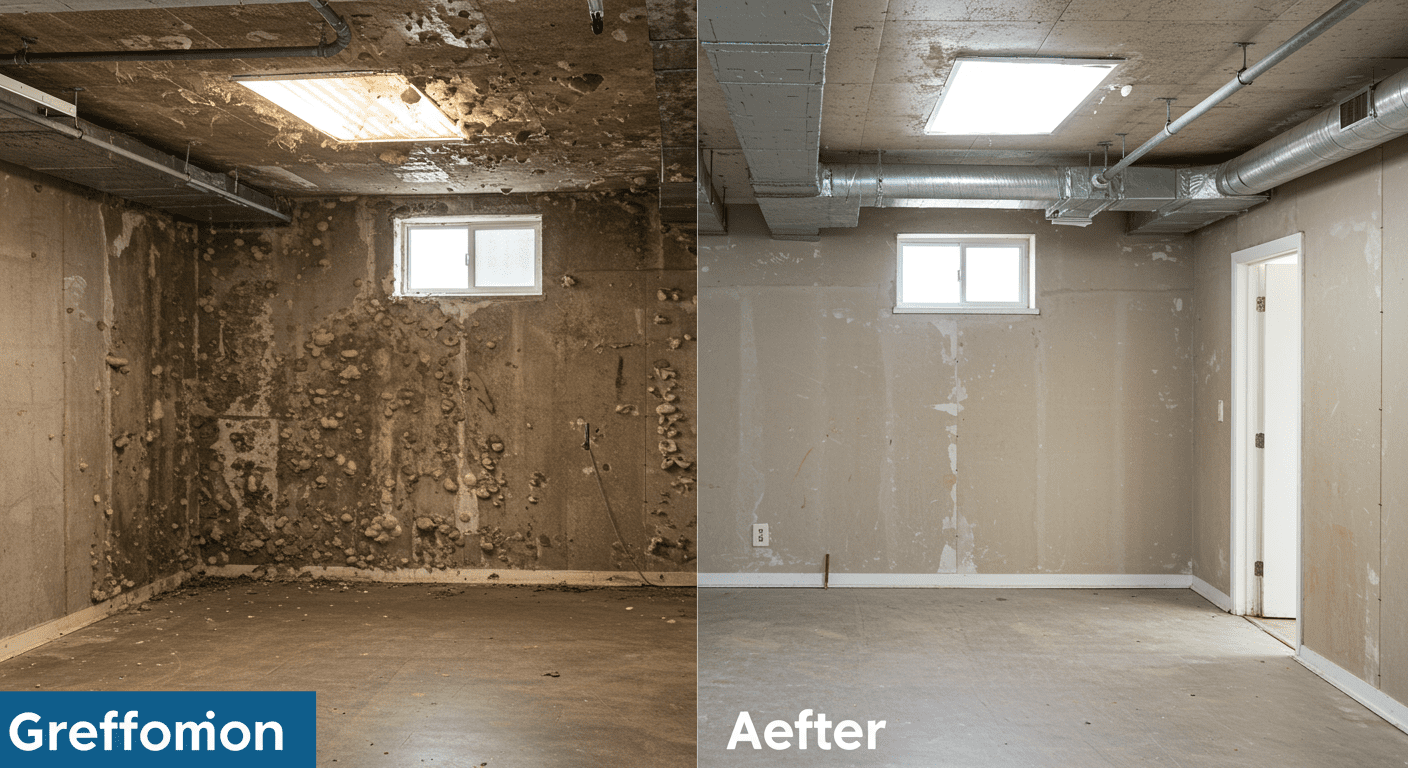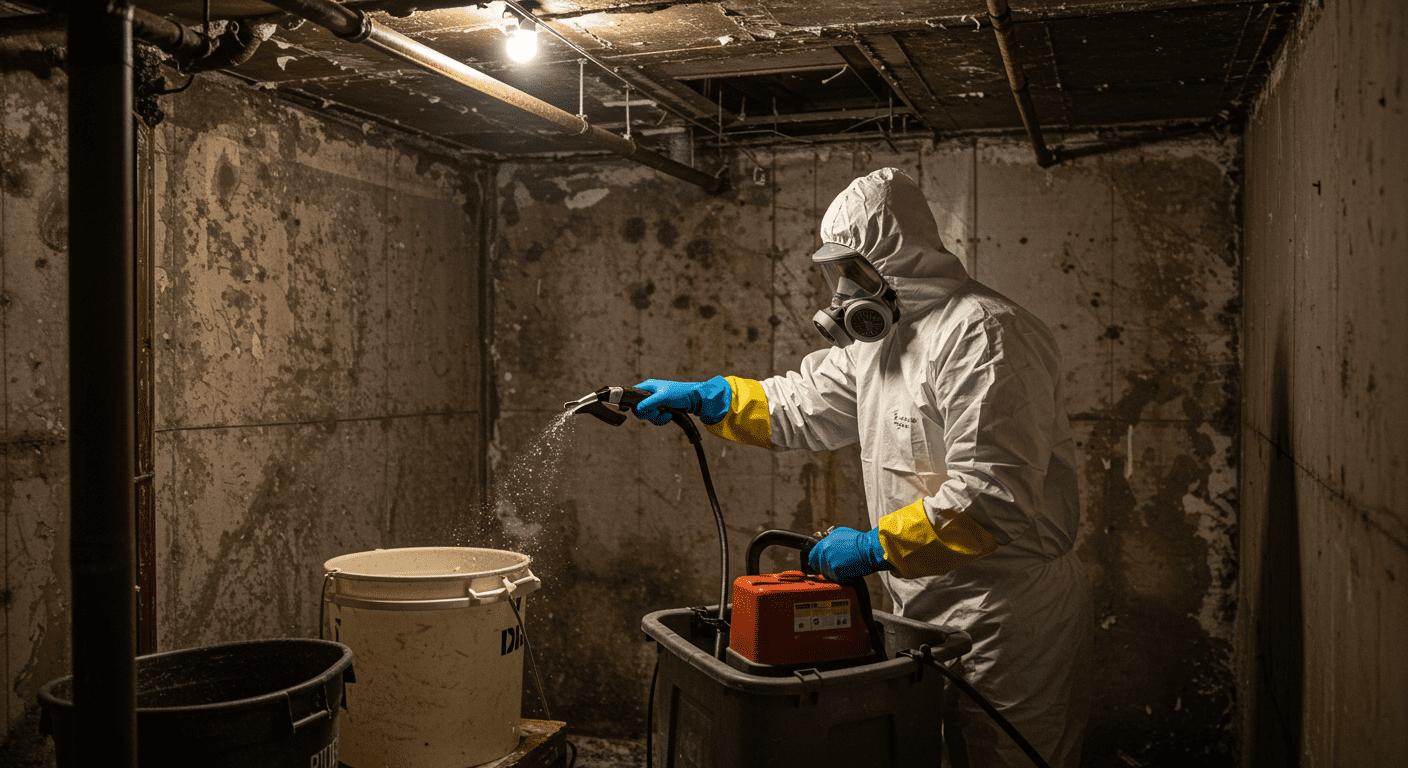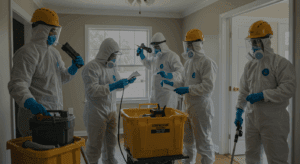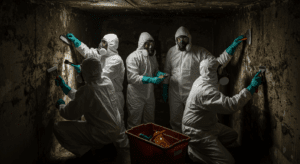Black mold in your basement is more than just an unsightly problem—it poses serious health risks and can cause structural damage to your home. For homeowners in Charlotte, NC, understanding the causes, risks, and solutions for black mold is essential to maintaining a safe and healthy environment. This comprehensive guide will walk you through everything you need to know about black mold, from identifying its presence to preventing future growth.
Understanding Black Mold and Its Risks
Health Risks Associated with Black Mold
Black mold, scientifically known as Stachybotrys chartarum, releases spores that can be harmful when inhaled. Prolonged exposure may lead to respiratory issues, allergies, skin irritation, and even more severe health problems like asthma attacks or chronic sinus infections. Children, the elderly, and individuals with compromised immune systems are particularly vulnerable to these effects.
If you or your family members are experiencing unexplained health issues, such as persistent coughing, sneezing, or headaches, black mold in your basement could be the culprit. Addressing this issue promptly is crucial to safeguarding your health.
Signs of Black Mold Growth in Basements
Detecting black mold early can save you time and money. Common signs include:
- A musty or earthy odor in your basement.
- Visible black or greenish patches on walls, ceilings, or floors.
- Water stains or discoloration on surfaces.
- Increased humidity or condensation in the basement.
If you notice any of these signs, it’s time to take action. Early detection can prevent the problem from escalating and causing further damage to your property.
Causes of Black Mold in Basements
Excessive Moisture and Humidity
Moisture is the primary catalyst for black mold growth. Basements are particularly susceptible due to their location below ground level, where water can seep through walls or floors. Leaks from plumbing systems or appliances can also contribute to excessive moisture levels.
Charlotte’s humid climate exacerbates the problem, making it essential for homeowners to monitor and control humidity levels in their basements. Using a dehumidifier or improving drainage systems can help reduce moisture and prevent mold growth.
Poor Ventilation and Structural Issues
Inadequate ventilation creates a stagnant environment where mold thrives. Basements with limited airflow or blocked vents are more likely to develop mold problems. Structural issues, such as cracks in walls or foundations, can also allow water to enter, creating the perfect breeding ground for black mold.
Regular inspections and timely repairs can mitigate these risks. Ensuring proper ventilation and addressing structural vulnerabilities are key steps in preventing mold growth.
Effective Mold Remediation Strategies
Professional Mold Inspection and Assessment
When dealing with black mold, a professional inspection is the first step. Experts use advanced tools to identify the extent of the infestation and determine the best course of action. They can also test air quality to assess the presence of mold spores.
Hiring a professional mold remediation service ensures thorough removal and minimizes the risk of recurrence. For residents in Charlotte, NC, expert services are readily available to address mold issues effectively.
DIY vs. Professional Mold Removal: What You Need to Know
While DIY mold removal might seem cost-effective, it’s not always the safest or most effective option. Small patches of mold can be cleaned using household solutions like vinegar or baking soda, but larger infestations require professional intervention.
Professionals use specialized equipment and techniques to remove mold and prevent its spread. They also address the root causes, such as moisture or structural issues, to ensure long-term results. Opting for professional services is often the best choice for severe cases of black mold.

Preventing Future Mold Growth
Moisture Control Solutions for Basements
Preventing black mold starts with controlling moisture levels. Here are some effective strategies:
- Install a dehumidifier to maintain optimal humidity levels.
- Seal cracks in walls and floors to prevent water intrusion.
- Ensure proper drainage around your home’s foundation.
- Use waterproof paint or coatings on basement walls.
These measures can significantly reduce the likelihood of mold growth and protect your home from future infestations.
Importance of Regular Maintenance and Inspections
Routine maintenance is essential for keeping your basement mold-free. Schedule regular inspections to identify and address potential issues before they escalate. Clean and declutter your basement to improve airflow and reduce moisture buildup.
Additionally, consider consulting a professional for periodic mold testing. This proactive approach can help you catch problems early and maintain a healthy living environment.
For more detailed guidance on mold prevention, check out our Comprehensive Guide to Black Mold Removal and Mold Remediation in Hickory, NC.
Black mold in your basement is a serious issue that requires immediate attention. By understanding its causes, risks, and solutions, Charlotte homeowners can take proactive steps to protect their homes and families. Whether you choose professional remediation services or implement preventive measures, addressing mold problems promptly is the key to a safe and healthy home.




